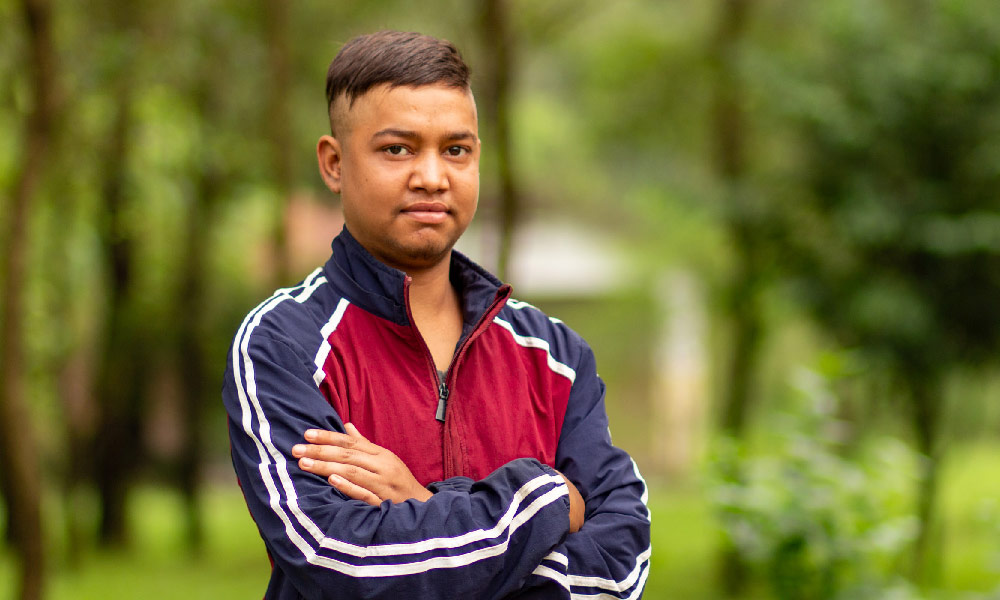Shambhav* is in his late teens. He is an 8th grade from the remote district Salyan which is about 12-hour drive from Pokhara. Shambhav’s brother works in a hotel in Pokhara, and he has been living with them for his studies.
Initially, he thought it was Vitiligo [a disease that causes loss of skin colour in patches) and took medicine for it. Shambhav’s sister was doubtful about the diagnosis; and took him to Western Regional Hospital, Pokhara. Later, he was referred to INF’s Green Pastures Hospital [GPH] as a suspected leprosy patient. In 2018, Shambhav was diagnosed with leprosy at GPH as type II reaction and bilateral ulnar nerve tender but not functional difficulties.
Again in 2020 during the lockdown of COVID-19, Shambhav got re-admitted for two weeks for his leprosy reaction. Shambhav faced discrimination from his family members. Nobody from his family came to visit him during his hospital stay. Shambhav’s mother couldn’t see him due to the pandemic travel restrictions and also because of the long travel distance. However, his brothers, who live in Pokhara, have not visited him, being fearful of transmission. His sister-in-law also didn’t want him to stay with them, which shows a very high level of stigma in the community. This is an unfortunate reality on how people with leprosy are not only affected by the disease alone but face the emotional trauma of being ostracised by their own.
Shambhav recalls, “Although I faced stigma and discrimination from my family members, coming here in GPH, I realised that the disease could be cured.
When asked about his feelings while staying in the hospital, his spontaneous answer was, “I felt adored and cared for. GPH is my second home away from home. I am thankful for the care and compassion showed by the hospital staff. The doctors and staff members are all friendly and supportive”, he adds. Apart from providing free services to poor and needy people, the hospital also provides opportunities like connecting with family members through phone calls and getting involved in recreational activities like playing basketball.
He wants to continue his study after completing treatment. “I shall engage myself in making people aware of the disease and about the stigma generated from the society which is more toxic than the disease itself. Not just the disease but the stigma in our society need to be cured too”.
Shambhav took Multi-Drug Therapy for two years, and currently, he is released from treatment (from July 2020). The hospital has suggested him to continue services from Shining Hospital- INF Banke.
This story highlights two crucial aspects of Nepali society: delay in diagnosis and stigma associated with the disease (mostly within the family). One of the causes of delayed diagnosis could be the lack of expertise in diagnosing leprosy. In Nepal, we do not have enough trained human resource to identify the signs and symptoms of leprosy; thus, it can be missed at its early presentation. Another cause is the false sense of security given by the declaration of elimination of the disease. By elimination, many people (health workers as well as the rest of the population) think that leprosy no more exists. So, they don’t tend to think of this ‘non-existing’ disease.
“Difference is natural, and Discrimination is Inhumane !” Nobody should face discrimination just because they are different. Every person should be free to live his or her life with dignity and enjoy his or her fundamental human rights. Let’s make the world free of discrimination!
*Name Changed for anonymity
To read more about INF’s Leprosy Campaign, visit: www.inf.org/careforcure



